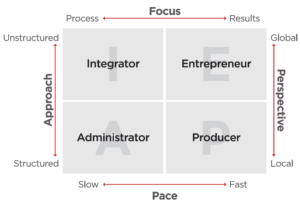Managing employees during a crisis is a critical aspect of human resource management, especially in dentistry. With the unique challenges that dental clinics face, effective HR strategies can make the difference between navigating a crisis successfully or struggling to survive. Here’s a detailed guide on managing employees in a dental clinic during a crisis, tailored to the Indian context:
Selection and Recruitment of Personnel
Key Tasks for Managers:
- Professional Competence: Prioritize candidates with strong clinical skills and experience. Consider qualifications from recognized institutions and practical experience in reputed clinics or hospitals.
- Management Skills: Balance the team with varied management styles. An emotional leader might need a meticulous administrator as a counterpart to ensure smooth operations.
- Continuous Development: Encourage ongoing learning to prevent burnout. Organize regular training sessions and workshops to keep the team updated with the latest dental practices and technologies.
Interview Process:
Conduct detailed interviews focusing on past experiences, problem-solving abilities, and willingness to learn. Ask about their understanding of clinic operations, patient management, and marketing.
Adizes Management Styles: Ensure a balance among Producer (P), Administrator (A), Entrepreneur (E), and Integrator (I) styles within the team.

Red Flags in Candidates:
- Dishonesty
- Poor motivation
- Lack of necessary competencies
- Inability to work as part of a team
Internal Communications
- Planning Meetings:
- Morning Meetings: Brief discussions to set the day’s agenda and review patient schedules. Include all staff members for a unified information flow.
- Midday Meetings: Department-specific meetings to delve into details. For instance, dental staff discussing patient treatments while administrative staff handles logistics.
- Evening Meetings: Online updates and reviews. Use platforms like WhatsApp for quick communication among doctors about patient care.
- Addressing Problem Areas:
- Marketing and Call Center: Weekly meetings following the Deming cycle (Plan-Do-Check-Act) to assess and refine marketing strategies.
- Cross-Department Communication: Regular planning meetings between managers, accountants, and senior nurses to ensure cohesive operations.
Managing Conflicts
- Useful Conflicts:
- Marketing vs. Call Center: Regular meetings to align marketing efforts with patient registration processes. Use data to resolve discrepancies and improve collaboration.
- Managerial Styles: Encourage dialogue between managers with different approaches (e.g., an accountant’s focus on details vs. a manager’s broader vision) to find optimization opportunities.
- Personal Conflicts:
- Resolution Strategies: Hold individual and group discussions to identify root causes and mediate conflicts. If necessary, consider reassignment to different clinics to maintain harmony.
Growing Managers and Leaders
- Identifying Potential:
- Encourage initiative and provide opportunities for growth. For example, promote promising staff to department heads or assistant chief physician roles.
- Managing Burnout:
- Monitor the balance between motivation and professionalism. Support employees through their career stages to keep them engaged and productive.
- Leadership Development:
- Monthly Leaders’ Meetings: Hold regular sessions where clinic leaders share insights and best practices. This fosters a culture of continuous improvement and innovation.
- Training Portal: Use internal platforms for standardizing training and ensuring consistent growth across the network.
Communicating During a Crisis
- Strategic Sessions:
- Conduct extraordinary strategic meetings to align on priorities, such as maintaining an effective team and optimizing costs.
- Handling Unpopular Measures:
- Loss making clinics may think about firing staff. Consider salary cuts instead. Approach salary cuts and other cost-saving measures through transparent discussions with staff. Ensure decisions are made collectively to foster a sense of shared responsibility.
Change Management
- Avoiding a Wave of Flight:
- Maintain reasonable salary levels and honest communication about the crisis. Show that the situation is temporary and that the clinic is working towards recovery.
- Turning Anxiety into Consolidation:
- Be present with the team. Regular visits and personal engagement can boost morale and unify the team during tough times.
- Prioritization of Tasks:
- Address problems sequentially to avoid panic. Break down large tasks into manageable parts to maintain focus and efficiency.
Common Mistakes to Avoid
- Discussing Unpleasant Topics When Emotionally Drained: Address serious issues when in a positive state to maintain morale.
- Cutting Marketing Costs Prematurely: Analyze market trends before making drastic cuts. Sometimes, investing during a downturn can yield significant benefits.
- Panic: Stay calm and convey stability to the team. A composed leader can navigate the team through crises effectively.
Managing a dental clinic during a crisis requires a combination of strategic planning, effective communication, and empathetic leadership. By focusing on these aspects, dental clinics in India can navigate crises more effectively, ensuring both staff well-being and continued patient care.




















Comments